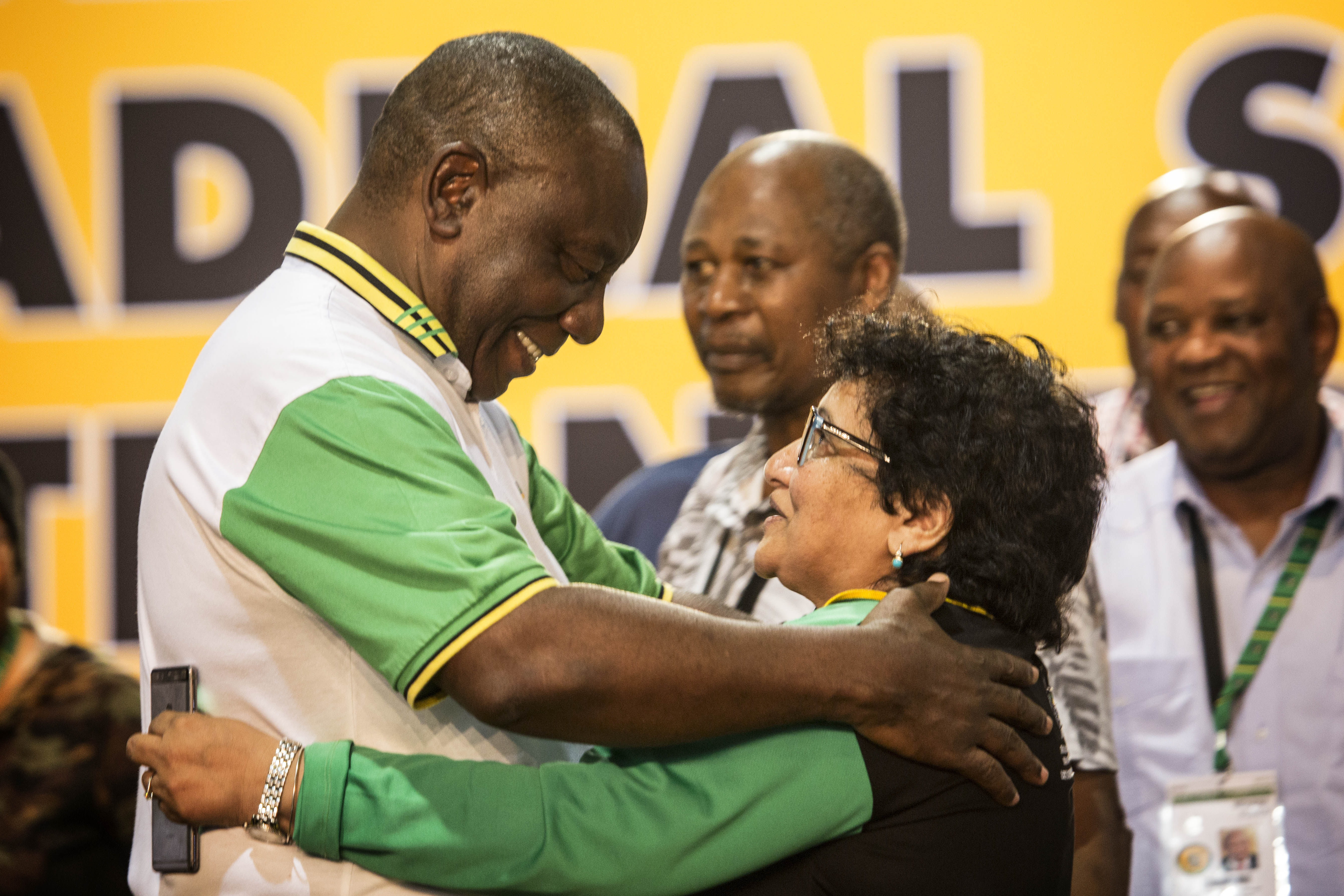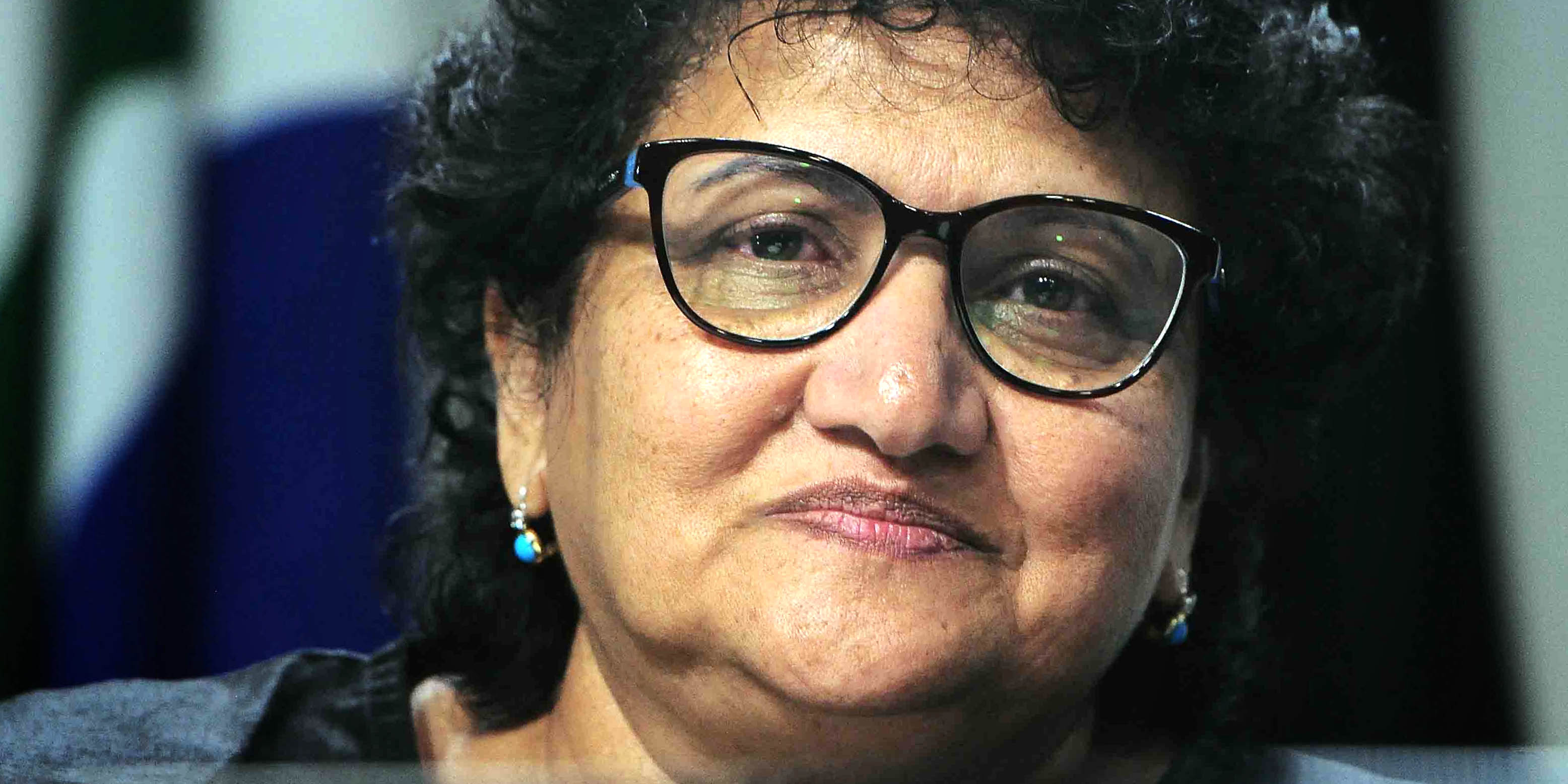In March, after her cancer diagnosis, and some months after she took a leave of absence from the ANC, Jessie Duarte sent a note to some of us asking for contributions to a book she would edit about the work that had gone into building the women’s movement in the 1980s.
I planned it as a piece to honour her, called The Meaning of Jessie Duarte and her Generation, but hung back from sending it because I feared it read like an obituary and I thought it might sadden her. With the force and strength of her personality, I thought she would rally and planned to duly send it when she was stronger.
This is the article she commissioned, except it is now an obituary and a big part of me wishes she had seen it before she died.
A community leader
In the 1970s and 1980s, women like Jessie Duarte and her generation were like beacons in a desert for youngsters like me with big dreams, stuck in a system that kept taking firehoses to them. We lived down the road from the Dangor family in Newclare. Their home was like a community centre that gathered young people in its warmth and revolutionary spirit.
Jessie was the only sister in her family of nine and she was by then married to John Duarte, whom she was later divorced from but remained friends with.
Through her work in many organisations, she was part of the cohort of leaders who organised the schools, consumer strike and other boycotts that gave meaning to our lives and painted canvases of future hope. By engaging us in activism across a spectrum of struggles, these leaders helped us plot a way out of the straitjacket constraints of apartheid capitalism.
When she returned from the United States where she spent time as an American Field Services (AFS) member, Jessie arranged to send young leaders to the US. Later, she worked with the cleric Beyers Naudé to arrange to send young people out of the country to learn and to prepare for freedom.
Gauteng Premier David Makhura said at her funeral on Sunday, July 17, that a generation of students had been educated through these efforts.
She and John arranged an AFS scholarship for me, but my parents preferred that I go straight to university. Her kindness and the potential she saw in me stayed with me. Women like her built us up by seeing us in ways the apartheid state kept trying to ensure we would never see ourselves.
Defining feminist struggle
As a member of the Federation of Transvaal Women (Fedtraw), Jessie made the greatest impact on future generations. With her comrades such as Albertina Sisulu, Bertha Gxowa and Sister Bernard Ncube, they defined feminism for South Africa, insisting that the Struggle against apartheid capitalism was a struggle against racism and gendered oppression.
I remember how their campaigns, through posters and organising at factories and in communities, made vivid how black women suffered a triple oppression of race, sex and class. It helped me understand the life of my mom, my aunts and the women in our working-class communities. And to recognise them as the titans they were for running their homes and bringing up their families.
Jessie and her generation ensured that workers’ rights — such as paid maternity leave, the child support grant and free healthcare — became policy and then law, changing the trajectory for millions of women.
As a young feminist journalist, it was an honour to report on these changes but also to have had first-hand insight into how policy change started in community struggles and grassroots campaigns.
As I scrolled through my old WhatsApp exchanges with Jessie in sadness on Sunday, I came across a message from August 2021. “I am so tired of women being victims. We must fight back now. Policies are not enough.” I agreed. “I want to leave this DSG (deputy secretary-general, her role at the ANC) and just be an active voice for women.”
At other times, she said she wanted to retire and spend more time with her four grandchildren, two of whom live in Canada.
A life given to the ANC
She never did (retire). Jessie gave her life to the struggle and to the ANC, which she served in numerous capacities until her death. I remember one time asking if she was heading to Canada over the holidays and she said that she didn’t have sufficient airline points for the flight.
Unlike many, Duarte never made money off her party affiliation and she remained, at heart, a grassroots activist.
Her greatest strength was political management and the years since the party’s 2017 conference took a toll as the increasingly factional party needed more and more corralling. This work often fell to her.
Jessie worked in Nelson Mandela’s office as ANC president and continued to serve under every party president, including Cyril Ramaphosa, making her its longest-serving official.
In 2017, Jessie ran the party presidency campaign for Nkosazana Dlamini-Zuma, who lost. She was still re-elected as deputy secretary-general under Ramaphosa and executed on his mandate, but she would likely have wanted to see a woman be ANC president in her time.
Some political analysts have caricatured her as a lash of Zuma, a trope I always found simplistic. Jessie knew his shortcomings, but her political loyalties to the ANC and to comradeship were unbound.
The Dangors were her first family; the ANC a close second. She, for example, duly implemented the party’s step-aside rule, which meant that she had to suspend the secretary-general Ace Magashule, but she also clubbed together with other leaders to pay his bail when he was first arrested.
 ANC president Cyril Ramaphosa and Jessie Duarte at the ANC National Elective Conference, December 2017. (Photo: Leila Dougan)
ANC president Cyril Ramaphosa and Jessie Duarte at the ANC National Elective Conference, December 2017. (Photo: Leila Dougan)
A soldier for non-racialism
The last time I saw her in person was after the November 2021 local government election. At the national results centre, she briefed me over lunch and said, with some disappointment, that the party would get just over 50% of the votes as a national percentage. She was spot-on.
As the ANC reaches the beginning of its end as a majority party, Jessie was witness to its rise and fall and her later writing reflects her concern. In a message to women in 2021, she wrote: “Our country needs us to unite and become a strong wall of resistance against patriarchy, greed, corruption and male egos. Vengeance is not justice, it is power politics.”
In their eulogies at her funeral, both Ramaphosa and Makhura said Duarte had campaigned at length for a return to the party’s principle of non-racialism.
The gift of her generation to mine was to think carefully through what non-racialism meant in practice. This meant to rise above race as the determinant of destiny and to ensure leadership and organisational collective were diverse, with a focus on African leadership.
In the ANC today, racial nationalism has bypassed non-racialism as a guiding principle and Jessie fought to the end against this. Her commitment to principled non-racialism will be part of her abiding legacy.
Jessie and journalists
As a journalist, Jessie has been a mentor and an immeasurably reliable voice. When I started out, I needed help with a larger political context than I had needed as a community activist and she provided that unstintingly.
In hours of briefings, her perspectives were always interesting and on the mark, even if I often did not agree with them. Her irascibility with journalists was legendary and I regularly got a tongue-lashing or a WhatsApp-lashing in more recent times.
In a particularly rough patch when the period of former president Jacob Zuma’s State Capture was at its height, she called me a serpent who spoke with a forked tongue. It cut to the bone but in the years that followed, she would become more forthright about the dangers that corruption posed to the ANC and to the country.
More than a few tip-offs about matters to investigate came from her.
My work was richer and textured for the hours she gave up, briefing me on her couch at her Observatory home in Johannesburg. There was always tea and something delicious to eat and inquiries about my mom’s health and my life.
Some years ago, I had hit a rough patch and I think it showed when I turned up at her place, clearly troubled and, I guess, a little sad. Her dog was pregnant and she asked if I would like a puppy. Mishka is still one of the best gifts I’ve received. I would send her photographs of his progress from pup to grown labrador.
 Deputy secretary-general of the ANC Jessie Duarte talks to the media during a march by the DA to the ANC headquarters on 12 February 2014 in Johannesburg, South Africa. (Photo: Gallo Images / Foto24 / Mary-Ann Palmer)
Deputy secretary-general of the ANC Jessie Duarte talks to the media during a march by the DA to the ANC headquarters on 12 February 2014 in Johannesburg, South Africa. (Photo: Gallo Images / Foto24 / Mary-Ann Palmer)
The caricaturing of strong women
In the playbook of sexism, strong women are often caricatured to make them more controllable. So it was with Jessie Duarte, who has often been passed off as a hack without a rich history and agency of her own.
My last, sadly undelivered, gift to her was a print of a photograph of her in the Power FM studio last August. The radio station gives over its mics to women leaders in Women’s Month. In it, Jessie is smiling behind the mixing desk and microphone.
She did not like how she came across in the media (though she could often be the architect of her own portrayal) and I thought the photograph presented a more resonant image of who she was — strong and often funny and kind.
Jessie Duarte’s legacy is layered and complex like the country she gave her life to building. May she rest softly. DM
Jessie Duarte, 1953-2022, was a feminist, activist and a political leader.




 Deputy secretary-general of the ANC Jessie Duarte talks to the media during a march by the DA to the ANC headquarters on 12 February 2014 in Johannesburg, South Africa. (Photo: Gallo Images / Foto24 / Mary-Ann Palmer)
Deputy secretary-general of the ANC Jessie Duarte talks to the media during a march by the DA to the ANC headquarters on 12 February 2014 in Johannesburg, South Africa. (Photo: Gallo Images / Foto24 / Mary-Ann Palmer) 